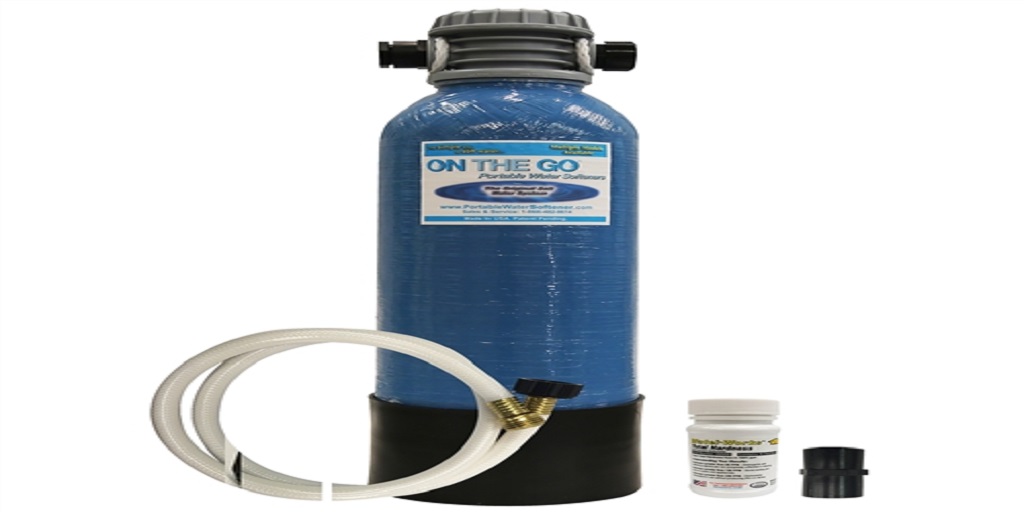Nobody wants a tank full of stale water in their RVs, but it’s a fact that clean, clear soft water is nearly impossible to have when RV camping.
Fortunately, a water softener for RV not only can provide you with clean water but also make sure your plumbing pipes are in their best condition.
One of the most significant advantages of a water softener is that it decreases mineral buildup in pipes, making your water flow more smoothly in your RV plumbing.
Below are other things you’ll want to know about RV water softeners. But first, what is it and how does it work.
What is an RV water softener?
An RV water softener is a product that can be installed in a recreational vehicle to reduce the hardness of the water. This is done by replacing the hard mineral ions with soft mineral ions.
The RV water softener has a large capacity and is typically mounted under an RV sink, inside an exterior storage compartment, or inside a closet. The installation process for an RV water softener usually takes less than one hour.
How does an RV water softener work?
An RV water softener, like an inline water filter, connects to your water system at the hookup outside of your rig. The resin in the softener casing is drawn to the magnesium and calcium contained in hard water.
Magnesium and calcium stick to the resin as hard water passes through the water softener, while sodium chloride is released into the water as it passes through the water softener and into your RV. This process is called ion exchange.
How long does an RV water softener last?
The resin, over time, will be bonded with the magnesium and calcium and will not collect any more. When the water softener “regenerates,” it does so by releasing saltwater from its internal brine tank to clean the resin of any clinging magnesium and calcium particles. The regeneration process can be manually done by adding salt to the unit for RV water softeners that don’t have brine tanks.
The resin lasts an average of 7 to 9 years, depending on the water softener, the quality of water, and the frequency of regeneration.
Is it okay to drink water from a water softener?
It is OK to consume softened water. However, whether or not you consume it is largely a question of personal preference. Some people enjoy the taste of harder water so they choose to have a drinking water tap installed at the same time as their softener.
According to the World Health Organization (WHO), there are no definite conclusions on whether it creates long-term health problems and there has never been a reported health-related problem associated with a water softener in over 90 years.
You shouldn’t, however, use softened water infant feeds or for meals of individuals on a low-sodium diet.
Is water softener worth it?
Unless you don’t want to save money on plumbing maintenance, especially pipe repairs, or you don’t care about dry skin and itchy hair, a water softener is worth buying.
Hard minerals and other deposits are removed by water softeners, which “soften” the water. Hard water in your RV’s plumbing system, if left untreated, can cause streaks on the shower walls, clogged pipes, dry or itchy hair and skin after showering, and more.
Less mineral buildup is better for your skin and hair! It also ensures smoother appliance operation.
Where to buy a water softener for RV?
If you’re ready to buy a water softener for RV, head on to rvupgradestore.com. They carry quality water softeners from some of the best brands.
They are one of the largest online retailers of RV accessories, RV parts, and RV supplies for your motorhomes and campers. With over 10,000 products to choose from at any given time, you’re sure to find the right product for you. Drop by their website today!



